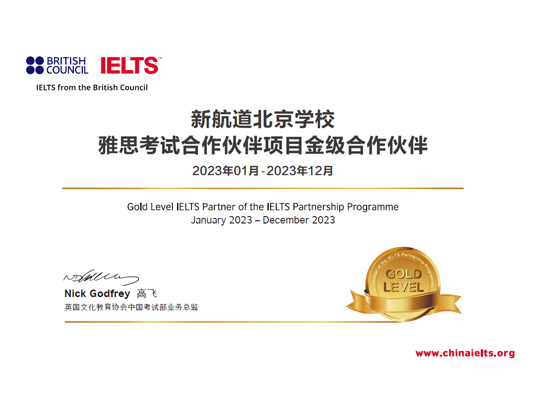当前位置:首页 > 雅思频道 > 雅思阅读 > 雅思阅读精品材料:全球屌丝生存现状
发布时间:2014-11-24 关键词:雅思阅读精品材料:全球屌丝生存现状
摘要:多听多说多阅读,今天北京新航道雅思培训小编为大家带来的雅思阅读精品材料是关于“屌丝”的,当今社会,屌丝可谓是遍布全球,全球屌丝生存的现状是怎样的呢?下面大家来一起阅读这篇双语新闻吧:
多听多说多阅读,今天北京新航道雅思培训小编为大家带来的雅思阅读精品材料是关于“屌丝”的,当今社会,屌丝可谓是遍布全球,全球屌丝生存的现状是怎样的呢?下面大家来一起阅读这篇双语新闻吧:
Diaosi find struggle everywhere
全球屌丝生存现状
JAPAN: Quitting the race before it begins
日本:放弃竞争的“满足”
Japanese culture is known for its emphasis on hard work and educational competition. Beginning in primary school, Japanese students engage in rigorous studies and testing.
日本文化向来以强调努力工作与教育竞争著称,从小学开始,日本的学生就在严酷的学业和考试中度过。
Students are pushed to their limits in hopes that, once they complete their education, their efforts will pay off in the form of a stable career with a good company. But many Japanese are discovering competitive educational credentials no longer guarantee success.
学生们虽然筋疲力尽,但他们依然相信只要能从教育竞争中脱颖而出,所有的努力都会有所回报:进好的公司,拥有安稳的工作。但是现在,越来越多的日本人发现竞争式的教育已不再是获得成功的保证。
“There is a feeling among young generations that no matter how hard we try, we can’t get ahead,” Shigeyuki Jo, 36, told The New York Times. “Every avenue seems to be blocked, like we’re butting our heads against a wall.”
今年36岁的Shigeyuki Jo在接受《纽约时报》采访时说,“现在的年轻人都有一种感觉,就是无论我们怎么努力,都无法取得成功。所有的道路似乎都被堵死了,撞个头破血流也没有用。”
Yet according to a survey conducted by the Japanese government, levels of youth satisfaction reached 78.4 percent in 2014, the highest they’ve been since 1967.
但是,日本政府的统计却显示,2014年年轻人的满意度高达78.4%,是1967年以来的峰。
University of Tokyo researcher Noritoshi Furuichi believes this increase in happiness is because young Japanese are giving up on competitiveness and focusing on living in the moment.
东京大学的研究员Noritoshi Furuichi认为,幸福感的增加是因为日本的年轻人已经放弃竞争,只顾享受当下。
“‘Enjoy today, tomorrow is coming’ encapsulates the mentality that increasingly absorbs Japan’s youth,” Furuichi wrote in a blog post for the East Asian Bureau of Economic Research.
Furuichi在为东亚经济研究所撰写的一篇博文中就写道:“‘享受今天,明天总会到来。”这成为越来越多日本年轻人的心态。”
“This ‘consummatory’ mindset is where, rather than striving towards long-term goals, the focus is on having fun in the ‘here and now’.”
“这种‘自我满足’的心态就是不再为实现长远目标而努力,只关心享受当下。”
US: Stressed but optimistic
美国:重压之下仍保持乐观心态
Many outside the US continue to see the country as one of opportunity, and despite being in a tough economic position, research shows many young Americans would agree.
身处美国之外的人们依旧认为美国充满机会,而研究显示,即使在当前严峻的经济环境下,美国的年轻人也赞同这种观点。
Eric Andersen, 25, graduated from the University of Iowa in 2010. Jobless and saddled with $15,000 (91,805 yuan) in student loan debt, he moved back in with his parents while he continued searching for employment.
今年25岁的艾瑞克•安德森2010年毕业于爱荷华大学。他不仅没有工作而且身负15000美元(约合人民币91805元)的助学贷款,但是回到家乡和父母同住的他并没有放弃继续找工作。
“I applied for jobs like it was my job,” Andersen told The Gazette. As has been the case for many other American millennials, Andersen’s determination paid off. He eventually landed a job as an editor.
在接受美国网站The Gazette的采访时,安德森说:“找工作本身就像是我的工作。”像美国千禧一代的年轻人一样,功夫不负有心人,他最终找到了一份编辑的工作。
Like their Japanese counterparts, young Americans have reorganized their values in order to remain positive through harsh economic times.
和日本人一样,美国的年轻人也是通过重新定位自己的价值,在这个经济不景气的时代里保持了一份积极的心态。
While making money still remains important to millennials, few expect to make as much as their parents did.
虽然,挣钱对于千禧一代依旧十分重要,但他们不再期待挣得像父母那么多。
These lowered expectations have made it easier for young Americans to appreciate what they do have.
因为期望值的降低,美国的年轻人似乎很容易知足。
According to the Pew Research Center, among those ages 18 to 34, 88 percent say they either have or earn enough money now or expect they will in the future.
皮尤研究中心的调查显示,美国18至34岁间的年轻人中,有88%的人认为自己手中的钱和挣得的钱,不论是现在,还是在以后都够花了。
“While young people are less likely now than they were before the recession to say they currently have enough income, their level of optimism is undiminished from where it was in 2004,” reported Pew.
皮尤的报告同时称,“虽然现在的年轻人的收入并不及经济衰退之前,但是,自2004年以来,其乐观的心态却丝毫没有受到影响。”
雅思阅读精品材料、雅思阅读材料、雅思阅读备考资料请继续关注北京新航道雅思阅读>>

